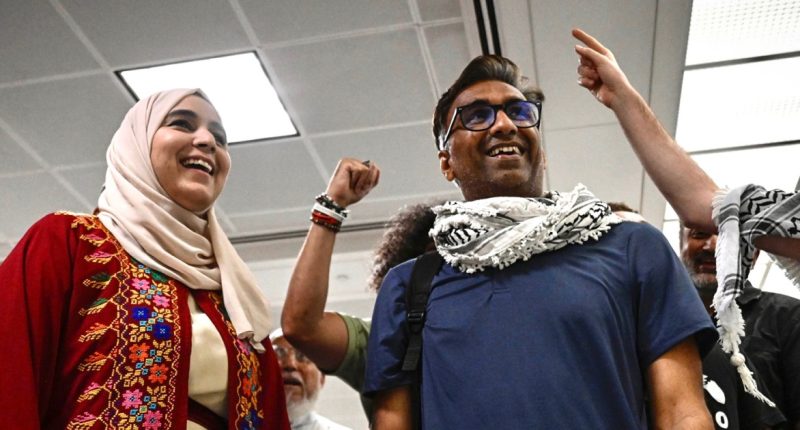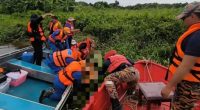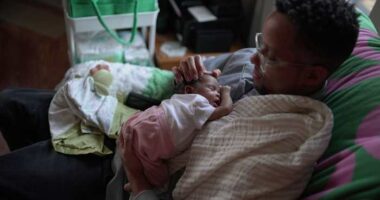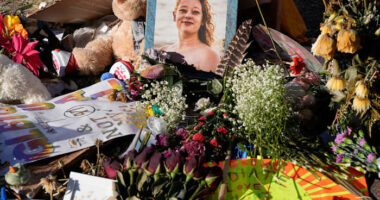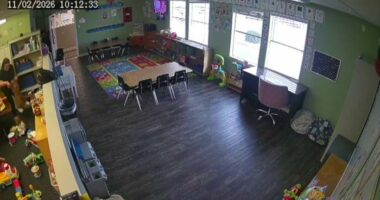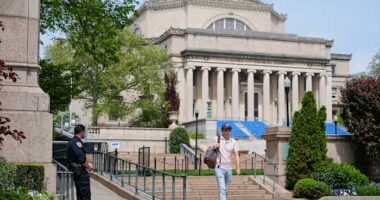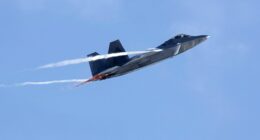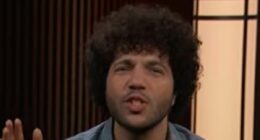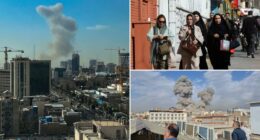Share this @internewscast.com
During his time held by Immigration and Customs Enforcement, Badar Khan Suri, a postdoctoral scholar from Georgetown University targeted for deportation under the Trump administration, crafted stories for his 5-year-old twins to help them handle his absence.
“For my younger twins, I created a story for them: I told them I was on a journey and had gotten lost in the clouds, trying to come back home,” Khan Suri mentioned in an email to NBC News.
This storytelling was one method Khan Suri used to parent his three children “with love, creativity and resilience” while in detention. Now, a little over a month since his release from an ICE facility in Texas, Khan Suri has looked back on the impact of being separated from his family, describing it as a challenging experience for his wife and children.
Khan Suri credits his wife, Maphaz Ahmad Yousef, with being a critical support system for their children, calling her a “blessing.” However, he’s still processing the pain of separation, he said.
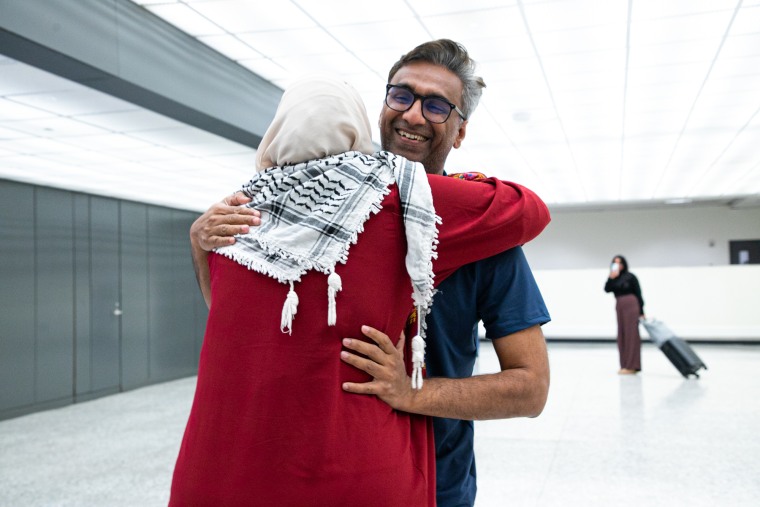
“For my family also, I feel the power dynamic changed. I am no more the provider or protector I once was,” he said. “But I have survivor’s clarity, as I saw the injustice. I am rebuilding my journey with meaning and truth.”
Parenting from detention, he said, “was one of the most heartbreaking parts of my experience — but also the one that kept me going.”
These days, Khan Suri — who was released last month after a judge ruled that his detention violated the First Amendment right to free speech and the Fifth Amendment right to due process — said his children have been enjoying life with both their parents at home. He said he has returned to some quintessential dad duties including bringing his kids to the bus stop, and he’s earned the privilege of being identified as the favorite parent in the household.
“Even the twins say ‘Baba’ when I ask who they love more,” he joked. “Before, it was always a clear ‘Mama.’”
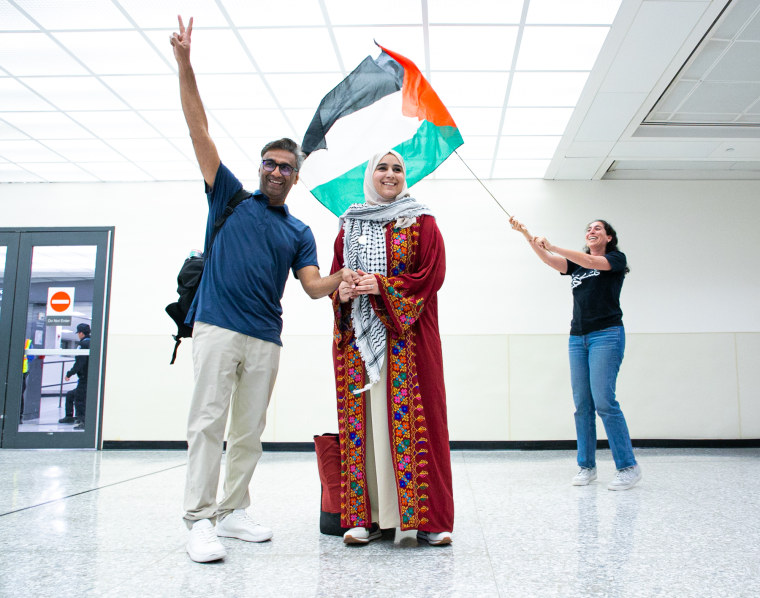
But three months ago, Khan Suri was pulled away from his family when he was arrested outside his Arlington, Virginia, home and accused by the Department of Homeland Security of “actively spreading Hamas propaganda and promoting antisemitism on social media.” He was never formally charged with a crime.
Khan Suri “has close connections to a known or suspected terrorist, who is a senior advisor to Hamas,” DHS spokesperson Tricia McLaughlin said in March on X.
His attorney Hassan Ahmad has repeatedly denied that he ever made pro-Hamas or antisemitic statements. Khan Suri’s father-in-law, Ahmed Yousef, was an adviser to a now-deceased Hamas leader. Yousef said he left his position more than a decade ago and he has since become a critic of Hamas.
Khan Suri described the first week in ICE custody as a “nightmare.”
“That night, my wife was only able to bring back my belongings. My elder son only saw my bag returning home and not me,” he said of the night of his arrest. “I was sad for my children, who had lost their father, their security cover, their ease in life.”
He had been moved across multiple facilities and three states, finally landing in Prairieland Detention Center in Alvarado, Texas. However, as Khan Suri’s detention stretched on, he said, he aimed to maintain some semblance of lightness for his family. During their occasional phone calls home, Khan Suri said he made sure his youngest children absorbed his tall tale about the clouds.
“When I first had the chance to speak with them, I repeated that same story,” he said. “They would draw pictures for me, and even save cupcakes or slices of pizza for me as if I might come back at any moment — they refused to let anyone else touch my share.”
While his youngest sons believed he had been journeying through the skies, Khan Suri said his oldest child had picked up on bits and pieces of his situation. And while at the facility, the father said, he had attempted to paint a more positive picture of the conditions he was living in, particularly as his 9-year-old became more withdrawn.
“I tried to bring humor into our conversations when I could,” he said. “I’d tell him I had a PlayStation 4, a basketball court and a soccer field where I was, and he would laugh and ask questions about them.”
According to Khan Suri’s habeas petition, he wasn’t assigned a bed in a dorm when he first arrived at the facility. Instead, he was placed in the detention’s “TV room,” where the television runs every day from 5 a.m. to 2 a.m., according to the petition. Khan Suri had also requested religious accommodations and only received halal food after five days, the documents said.
“On April 2, officers came and told him that he had complained through his lawyer about his religious accommodations and asked him for more details,” the petition said. “After Dr. Khan Suri reaffirmed his needs, he was given a prayer mat, a Quran, and provided a space on a bed in the dorm, outside of the TV room.”
He was also issued a bright-red uniform, usually reserved for individuals classified as requiring high security due to their criminal history, the petition said. When he inquired about the uniform, Khan Suri was told that he fell under the category due to his association “with a known criminal group — presumably based on Respondents’ unfounded claims of his connections to Hamas,” the petition said.
“Due to his classification and security protocols at the facility, Dr. Khan Suri is only permitted two hours per week of recreation,” the petition said.
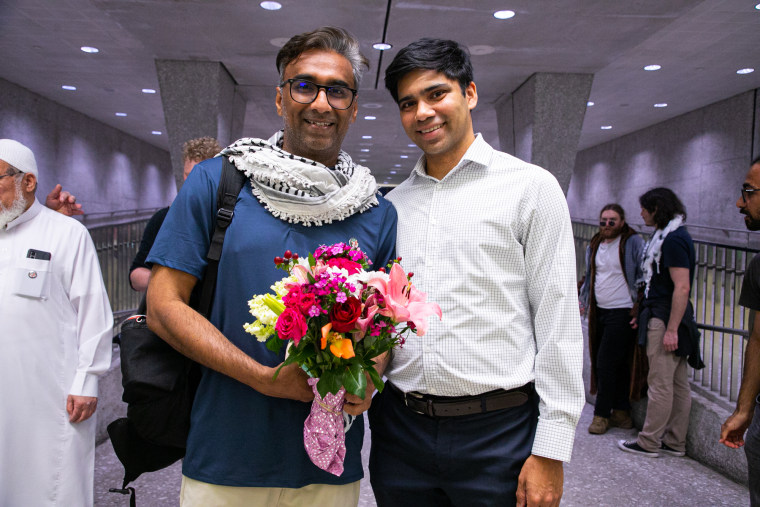
Khan Suri said he kept his children front of mind in order to cope with the circumstances, as well.
“I would write about them, I would think about them — like when their school bus would come, when would it return, what they do during the day, what they were drawing,” he said. “When I saw drawings by kids of other detainees, I felt the love for my children.”
After he was released following the judge’s ruling that the government had failed to provide evidence that Khan Suri was a flight risk or a danger to the community, he said the reunion with his children was joyful.
“In the morning, I woke up before them. When they saw me, all three were shouting with joy, hugging and kissing me,” he said. “For the twins, I had finally come back from the ‘clouds.’”
